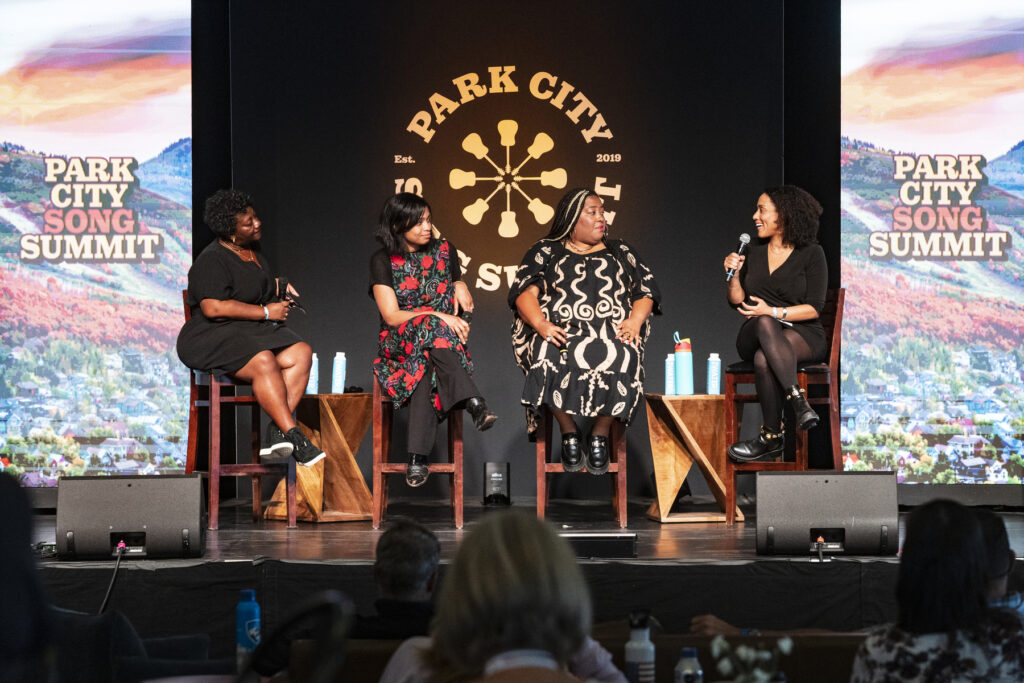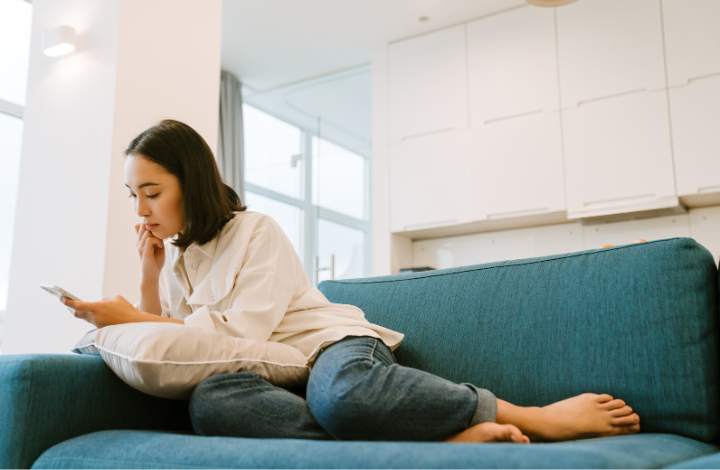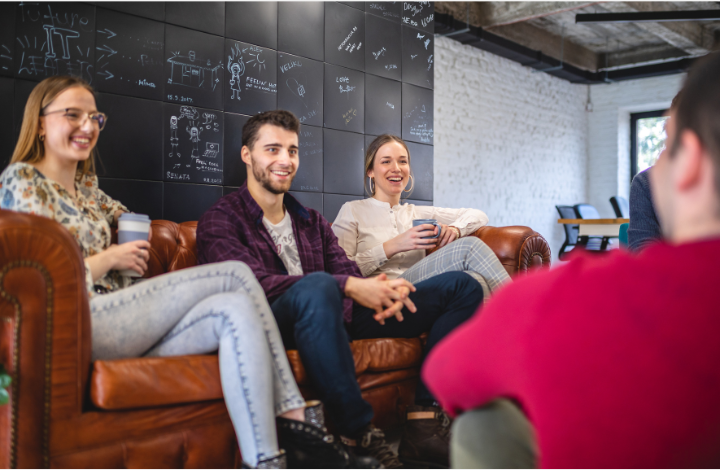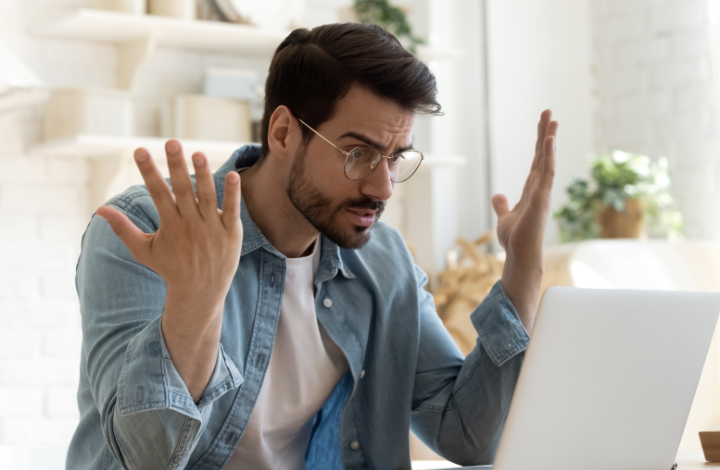Tressie McMillan Cottom, Adia Victoria and Celisse. Photo: Erika Goldring
Work is evolving.
It’s true for entrepreneurs, startups, teams, corporates and remotes. And it’s also true for musicians.
Over the last 10 years, my work has been focused on coworking and community building. In that time, I’ve seen coworking grow from a movement to an industry … and back again.
Coworking is, in many ways, leading the charge around workplace wellness, connection, collaboration, impact and belonging. Personal and collective wellness is increasingly a consideration when people choose companies, workspaces and careers. Green buildings, healthy air quality, DEI initiatives, social responsibility and human-focused spaces have gone from nice-to-haves to essentials in order to attract great talent.
Before my time in coworking, however, I spent 20 years working in record stores, deeply enmeshed in the local and global music industry and scenes. My first professional writing beat was arts and culture and, over the years, I’ve interviewed 100-plus artists, written about many others and attended more shows than I can recall.
And I can tell you, wellness is not a consideration in the music world. Artists are driven by extreme pressures, unrealistic expectations and the familiar-yet-false illusion that life on the road, hanging on by a thread, is romantic.
Imagine dragging to a new town every night; waking up in a different bed every morning; traveling all day then playing your heart out at night; being signed by a label when things are going well; and being dropped by that same label as soon as things take a turn for the worse.
Ever wonder why the rates of addiction, alcoholism, mental illness and suicide are so high among musicians?
According to a report from the Substance Abuse and Mental Health Services Administration (SAMHSA), there were more than 70,000 drug-related overdose deaths in 2020. Of those, nearly 10% involved musicians or other music industry professionals.
The National Institute on Drug Abuse (NIDA) reports that opioid abuse is particularly rampant among musicians and other members of the music industry, with an estimated 40% of musicians struggling with opioid addiction at any time.
A 2019 report from Record Union found that 73% of independent music makers experience symptoms of mental illness.
The reality behind the data is anything but romantic.
Life as a traveling artist can easily turn to a downward spiral of exhaustion, addiction and illness, while trying to maintain a reputation. And there isn’t a lot of industry support for musicians to be who they are—multidimensional beings pursuing their gift and craft under the weight of pressures that most of us will never understand.
Until now.
I recently attended the Park City Song Summit in Park City, Utah and I can wholeheartedly report that this three-day music event has the potential to transform the music industry by recalibrating how artists are treated, and rethinking expectations that artists are somehow outside the normal needs of wellness, humanness and authentic connection.
Launched just in time for Covid by Ben Anderson, the Song Summit was put on hold for two years. When the first one finally happened in 2022, Anderson created and held space for artists to come relax, recuperate, share their stories, connect with each other and allow themselves to lay down the burden of being superhuman.
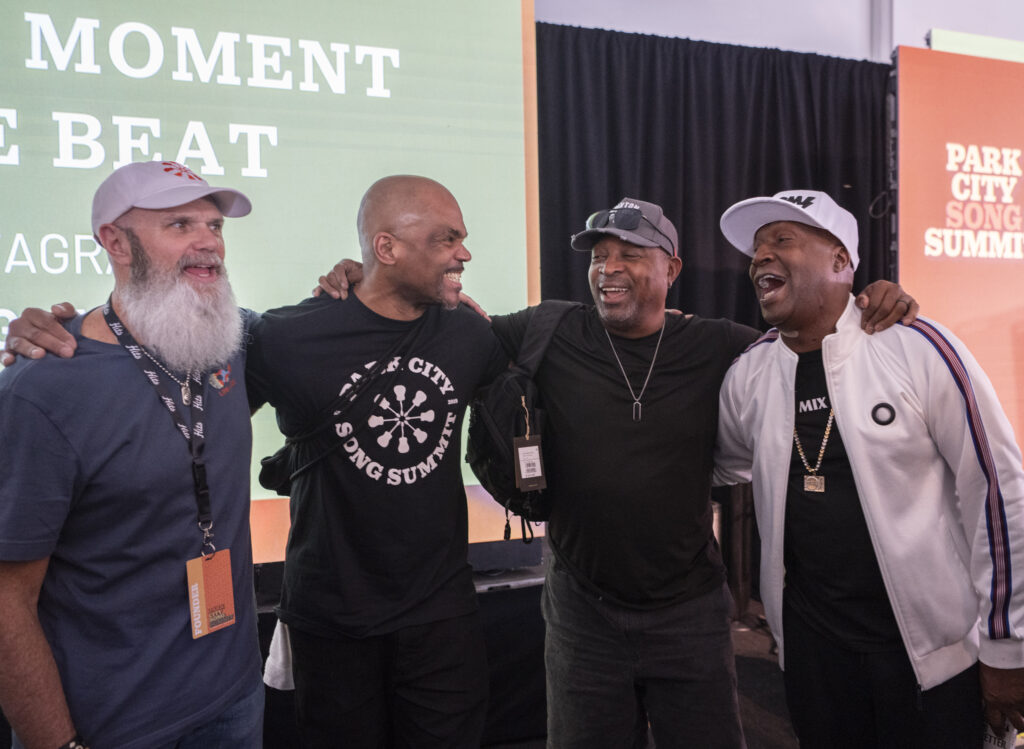
Ben Anderson, Darryl “DMC” McDaniels, Chuck D and Grandmaster Flash. Photo: @LIMAPHOTO
This year, the Song Summit bar was raised in every way. Here are a few highlights:
Darryl “DMC” McDaniels talking to a packed room about his challenges with addiction, adoption and childhood trauma.
Matisyahu sharing openly about his “existential loneliness” and how he had to trust his inner truth and not the expectations of who he was as an artist and human when he stepped away from Orthodox Judaism.
Celisse, Adia Victoria and Tressie McMillan Cottom talking about the “brilliant, radical act of the blues,” how real life is as spiritual as it gets, that the early blues women were the ones who jumpstarted the genre by speaking out in public and “troubling the waters,” and that the blues is a collective practice.
Grandmaster Flash giving a personal glimpse into his musical beginnings, taking us back to the first days of hip-hop and re-educating everyone in the room that, despite the popular narrative, hip-hop started with DJs spinning breaks—not MCs.
Steve Polz sharing his wild-but-true story of life as a stadium-level musician, hitting bottom and his recovery back.
Longtime Grateful Dead photographer Jay Blakesberg telling stories of what it was really like hanging out with Jerry Garcia and members of the Dead.
Oh yeah, and the music. So much outstanding music. Including mountain-sized cheers when Bob Weir sang the “Friend of the Devil” lyric, “Spend the night in Utah in a cave up in the hills.”
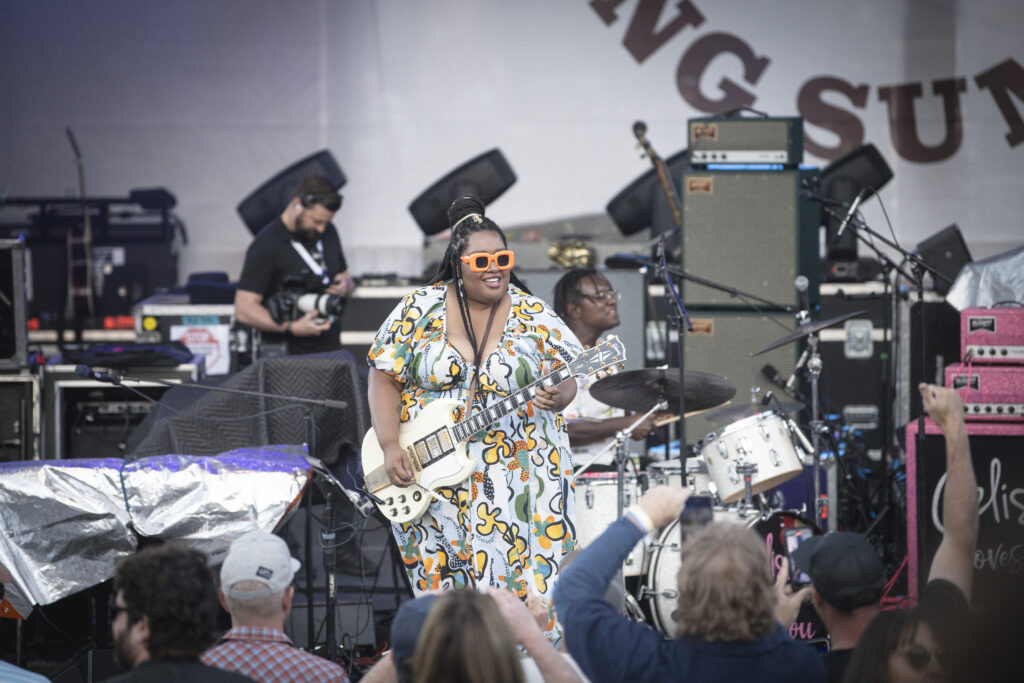
Celisse, doing her thing. Photo: @LIMAPHOTO
But this was not a festival. At least in the way we think about music festivals.
The Park City Song Summit is kind of an anti-festival—a gathering of creatives. In fact, I got the sense that the Summit is more about giving the artists a place to retreat than it was about squishing as many audience members as possible into one place.
There was an Artist Wellness Lounge; outdoor yoga, recovery hangs, a relaxed vibe in which musicians could freely walk around with their friends and family; the stunning and healing backdrop of the Park City mountains; and a low-pressure setting for fans and admirers to have a real conversation with the artists.
I’m betting that this is the future of music—and music gatherings—in the same way that freedom and flexibility are the future of work.
Why should musicians and creatives be left out of the future of work?
They shouldn’t.
My hope is that word of the Song Summit spreads far and wide, that artists who need to reconnect with something real find their way to Anderson and the Summit community, and that it all helps to reimagine how we think about musicians and the humans behind the music.
The future of work needs to include creatives too.
✌️
Your community is your greatest differentiator
GET community tips and INSIGHTS every Thursday

